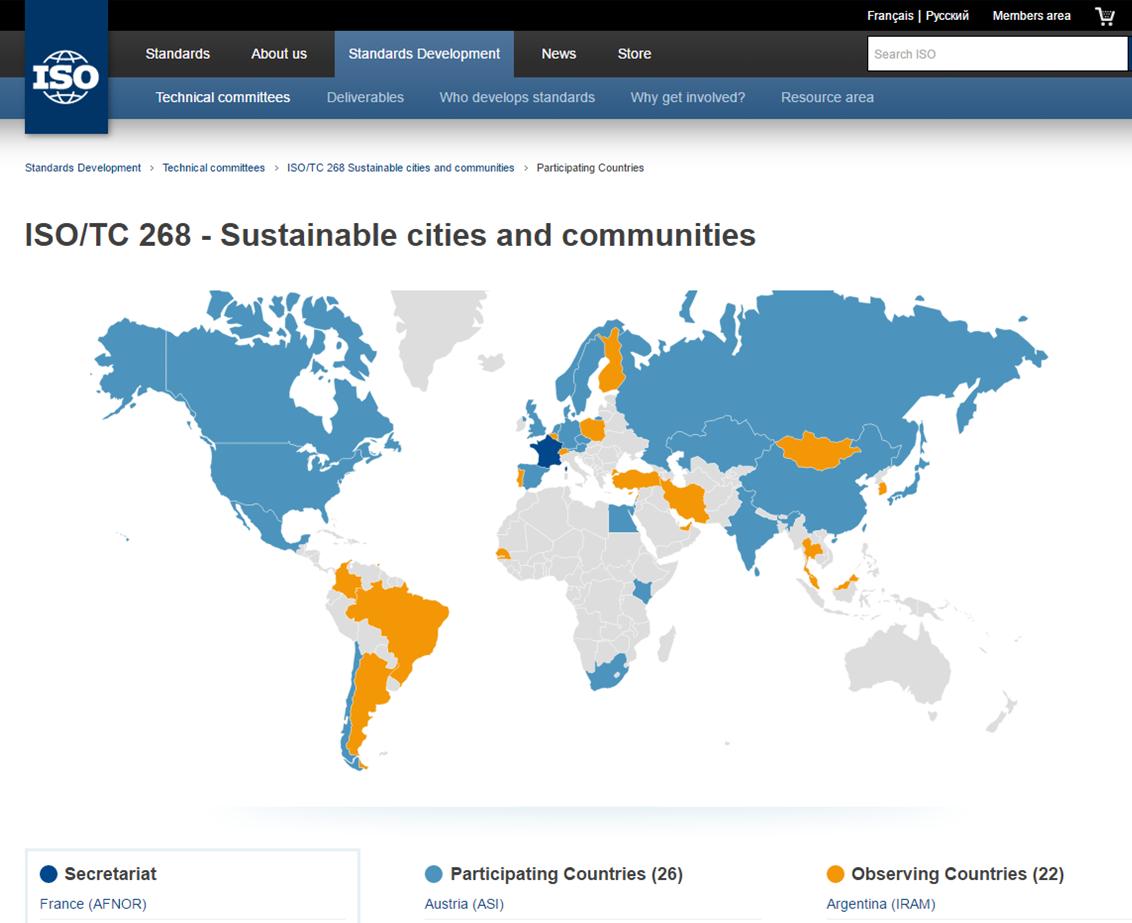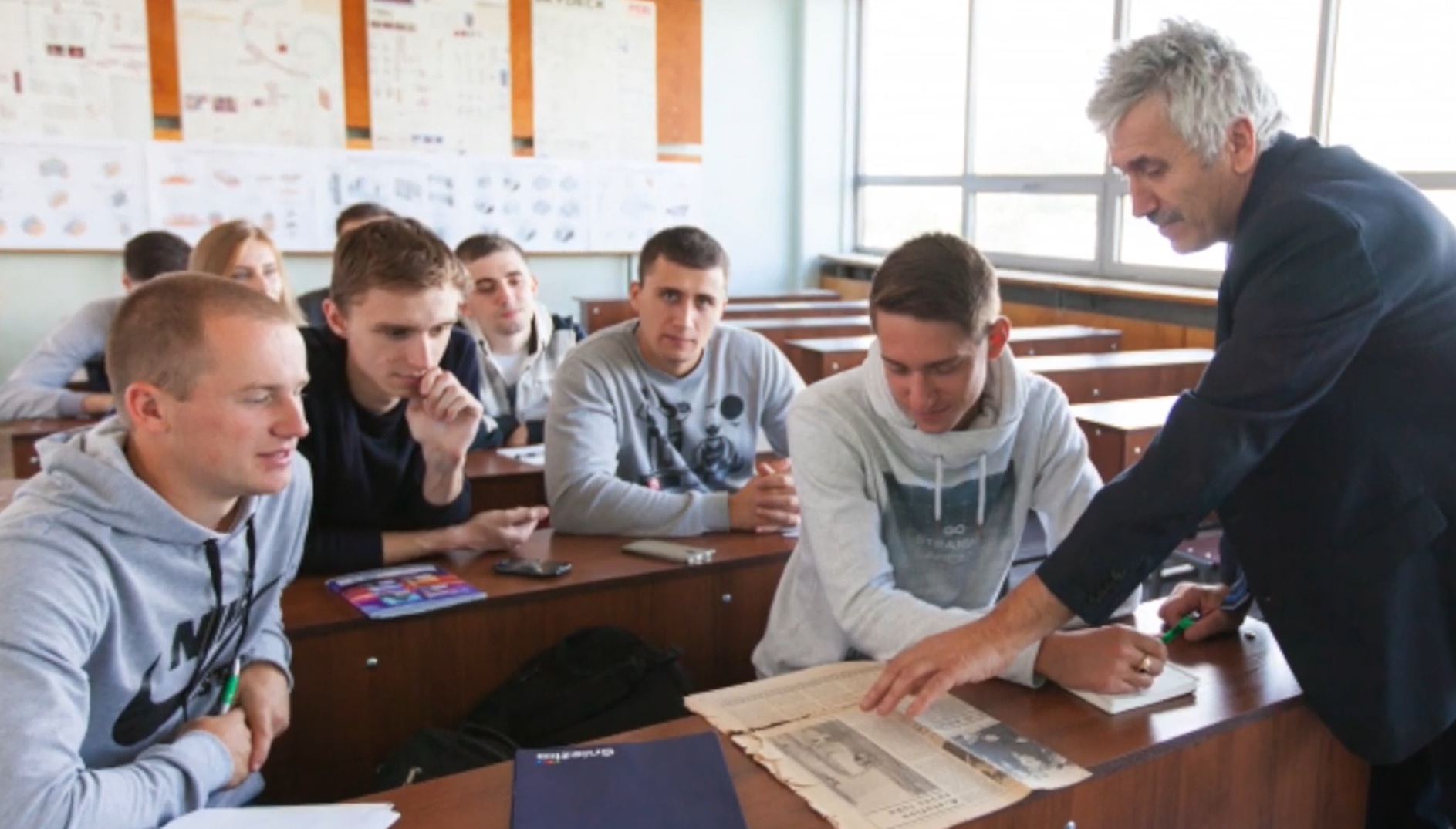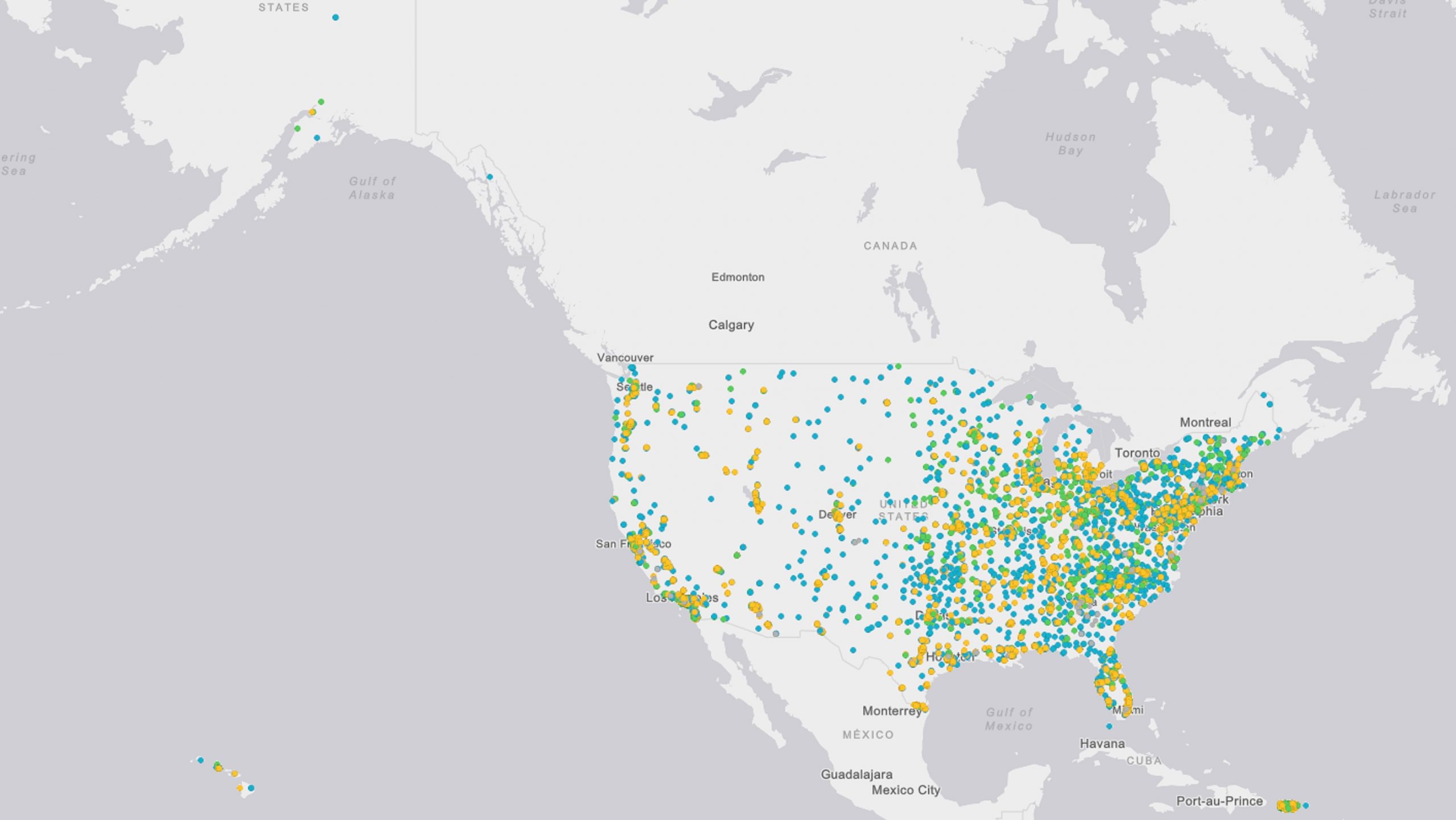In Rome you long for the country;
in the country – oh inconstant! – you praise the distant city to the stars.
— Horace
As cities-within-cities, education communities stakeholders in broad policy formulation of town-gown infrastructure of the emergent #WiseCampus. Since 2014 we have been participants in this project, supporting the original US TAG — the National Fire Protection Association. Last year the NFPA relinquished the US TAG role in this project but we are on “standby” and ready to resume activity when a replacement US TAG is found.
Click here for the Business Plan.
Consensus documents emerging from ISO/TC 268 tend to be large, fast-moving and highly interdependent. Drafts for US stakeholder comment and balloting arrive frequently as new workgroups are spawned from the core ISO TC/268 committees.
We are happy to review these documents with education communities in other participating countries involved in this project online during our Hello World! and Zoning colloquia; the next shown on our CALENDAR. Use the login credentials at the upper right of our home page.
10 August 2022:
ANSI continues to seek US Technical Advisory Group Administrator (List of ANSI US TAGS May 13, 2022)
1 January 2022:
ANSI seeks a US Technical Advisory Group Administrator
31 July 2021:
No new consultations released to ANSI.
15 July 2021:
No new consultations released to ANSI.
20 May 2021:
No new consultations. NFPA has relinquished its role as US TAG and it is likely that ANSI is busy either finding a new TAG or assuming leadership of the TAG role itself.
9 March 2021:
No consultations issued by NFPA, the US TAG
9 December 2020:
ISO/CD 37108 Sustainable Cities and Communities – Business Districts – Guidance for Practical Local Implementation of ISO 37101. Ballots due 8 January
2 November 2020:
ISO/DIS 37106:2018/DAM 1 Sustainable Cities and Communities — Guidance on Establishing Smart City Operating Models for Sustainable Communities – Amendment 1. Comments due November 23rd
13 October 2020:
Smart community infrastructures — Data exchange and sharing for community infrastructures based on geo‐information. Comments due November 3.
2 October 2020:
ISO/CD 37109 Sustainable Development and Communities – Practical Guidance for Project Developers – Meeting ISO 37101 Framework. Comments due October 21
10 September 2020:
ISO / CD 37110 Sustainable Cities and Communities — Management Guidelines of Open Data for Smart Cities and Communities — Part 1: Overview and General Principles. Comments due September 29
Holidays in France
No drafts open for comment
5 August 2020:
ISO/PWI 37111 Sustainable Cities and Communities – Small and Medium Sized Cities – Guidance for Practical Implementation of ISO 37101. Comments due August 19th
15 July 2020:
ISO/DIS 37164 Smart Community Infrastructures – Smart Transportation Using Fuel Cell LRT. Comments due July 27th.
ISO / FDIS 37165 Smart Community Infrastructure – Guidance on Smart Transportation with the Use of Digitally Processed Payment (d-payment. Comments due August 5th
8 July 2020:
No drafts open for comment
15 June 2020:
ISO/FDIS 37163 Smart Community Infrastructures – Guidance on Smart Transportation for Parking Lot Allocation in Cities. Comments due June 22nd
7 May 2020:
ISO / DIS 37167 Smart Community Infrastructures – Smart Transportation for Energy Saving Operation by Slowly Driving Intentionally. Comments due June 5th.
1 May 2020:
ISO/CD 37166 Smart Community Infrastructures – Urban Data Integration Framework for Smart City Planning. Comments due May 21st.
21 April 2020:
No drafts open for comment
19 March 2020:
ISO/NP Reserved 37180 Smart community infrastructures — Guidance on smart transportation with QR code identification/authentification in transportation and its related/additional services Comments due April 9th
11 March 2020:
ISO/ DIS 37106 Sustainable Cities and Communities – Guidance on Establishing Smart City Operating Models for Sustainable Communities – Amendment 1. Comments due by March 18th
3 February 2020:
ISO/FDIS 37160 Smart Community Infrastructure – Electric Power Infrastructure – Measurement Methods for the Quality of Thermal Power Infrastructure and Requirements for Plant Operations and Management. Comments due by February 17th
13 January 2020 Update:
No exposure drafts open for comment at this time.
26 December 2019 Update:
ISO/FDIS 37162 Smart Community Infrastructures – Smart Transportation for Newly Developing Areas. Comments due 9 January 2020
4 December 2019 Update:
ISO/DIS 37165 Smart Community Infrastructures – Guidance on Smart Transportation by Non-cash Payment for Fare/Fees in Transportation and its Related or Additional Services. Comments due 18 December 2019
WG4 TR— Data exchange and sharing for community infrastructure based on Geoinformation. Comments due 18 December 2019
WG4 TR Smart Community Infrastructures Report of Pilot Project on the Application of SC1 Deliverables. Comments due 18 December 2019
4 November 2019 Update:
ISO/NP 37169 Smart Community Infrastructures –Smart Transportation by Run-Through Train/Bus Operation in/between Cities. Comments due November 20th
ISO/NP 37168 Smart Community Infrastructures – Guidance on Smart Transportation for Autonomous Shuttle Services Using Connected Autonomous Electric Vehicles (eCAVs). Comments due November 20th
ISO/FDIS 37155 Framework for Integration and Operation of Smart Community Infrastructures – Recommendations for Considering Opportunities and Challenges from Interactions in Smart Community Infrastructures from Relevant Aspects through the Life Cycle. Comments due November 20th
7 October 2019 Update:
ISO/FDIS 37123 Sustainable Cities and Communities – Indicators for Resilient Cities. Comments due October 29th
25 September 2019 Update:
ISO/NP 24609 Smart Community Infrastructures – Data and Framework of Digital Technology Apply in Smart City Infrastructure Governance. Comments due October 3rd
10 September 2019 Update:
ISO/FDIS 37105 Sustainable Cities and Communities – Descriptive Framework for Cities and Communities. Comments due September 19th
2 August 2019 Update:
ISO/CD 37164 Smart community infrastructures — Smart transportation using fuel cell light rail transportation. Comments due August 16th
ISO/DIS 37163 Smart Community Infrastructures – Guidance on Smart Transportation for Parking Lot Allocation in Cities. Comments due August 19th
1 August 2019 Update:
ISO/NP 37167 Smart Community Infrastructures — Smart Transportation for Energy Saving by Intentionally Slowly Driving. Comments due August 12th
July 28, 2019 Update:
ISO/CD 37155-2 Framework for Integration and Operation of Smart Community Infrastructures- Part 2: Holistic Approach and the Strategy for Development, Operation and Maintenance of Smart Community Infrastructures. Comments due August 1st.
June 25, 2019 Update:
ISO / DIS 37160 Smart Community Infrastructure – Measurement Methods for Quality of Thermal Power Station Infrastructure and Requirements for Plant Operations and Management. Comments due July 12th
June 5, 2019 Update:
No commentable documents at this time.
May 22, 2019 Update:
ISO/DIS 37161 Smart Community Infrastructures – Guidance on Smart Transportation for Energy Saving in Transportation Services in Cities. Comments due June 5th
May 16, 2019 Update:
No commentable documents at this time. We walk through all transportation-related standards action on May 16th.
April 29, 2019 Update:
ISO NP 37166 New Work Item Proposed: Smart Community Infrastructures. Specification of Multi-Source Urban Data Integration for Smart City Planning. Comments due May 14th
March 14, 2019 Update:
ISO/FDIS 37122 Sustainable Cities and Communities – Indicators for Smart Cities | Comments due April 2nd.
February 19, 2019 Update:
ISO/FDIS 37104 Sustainable Cities and Communities – Transforming Our Cities – Guidance for Practical Local Implementation of ISO 37101 | Comments due February 15th
ISO NP 23944 (N330) New Work Item Proposed: Smart Community Infrastructures – Guidance on smart Transportation by Non-Cash payment for Fare/Fees in Transportation and its Related or Additional Services | Comments due February 15th
Ballot for ISO NP 23943 (N328) New Work Item Proposed: Smart Community Infrastructures – Smart Transportation using Fuel Cell LRT | Comments due February 15th
January 24, 2019 Update:
ISO/DIS 37123 Sustainable cities and communities — Indicators for resilient cities. Ballots due February 8th
Some amount of the commentable material cannot be distributed and must be viewed online (a chronic problem). Click in to any of our daily 11 AM EST teleconferences if you would like to read and mark up with comments.
December 18, 2018 Update:
No commentable documents at this time
November 1, 2018 Update:
ISO / DIS 37155 Framework for Integration and Operation of Smart Community Infrastructures – Part 1: Opportunities and Challenges from Interactions in Smart Community Infrastructures from all Aspects through the Life Cycle.
* Owing to copyright restrictions you must send an email to bella@standardsmichigan.com to access to the documents
https://standardsmichigan.com/iso-267-access-to-documents-open-to-public-review/
Comments are due November 19th
October 1, 2018 Update:
Comments due October 5th:
14-101 ISO 268 Item ISO IEC 17021 Public Review Draft
September 18, 2018 Update:
Comments are due September 24th on the documents linked below:
14-101 ISO WD TS 37107 SEPT 2018 Sustainable Cities
14-101 ISO CD 37160 SEPT 2018 Sustainable Cities
September 16, 2018 Update:
The US TAG convened at NFPA Headquarters last this week. Since some of the material is copyright protected, we welcome education facility professionals to click in any day at 11 AM to review the commenting opportunities open to US stakeholders generally, and education industry professionals specifically.
Draft document now open for public review: Smart community infrastructures — Guidance on smart transportation for allocation of parking lots in cities. (ISO Stage 20.20) Comments are due at NFPA on September 13th
US TAG meets at NFPA Headquarters in Quincy, Massachusetts September 12 and 13. Mike Anthony will be in attendance.
August 2018 Update:
Draft document now open for public review: Sustainable development in communities — Indicators for Smart Cities. Comments are due at NFPA on August 27th.
Draft document now open for public review: Guidelines on Data Exchange and Sharing for Smart Community Infrastructures. Comments are due at NFPA on August 24th
One draft document is now open for public review: Smart community infrastructures — Smart transportation for rapid transit in/between large city zones and the surrounding areas (ISO/DIS 37159). Comments are due at NFPA on August 7th.
No new business items received from ISO Genève. US TAG will meet in at NFPA headquarters, September 12-13, 2018
June 2018 Update:
No new business items received from ISO Genève. The US TAG is planning a September on-site meeting at NFPA Headquarters in Boston.
May 2018 Update:
Balloting was completed by the US TAG on proposed ISO/FDIS 37120 Sustainable Development in Communities – Indicators for City Services and Quality of Life
April 2018 Update:
At the 2017 Paris meeting of TC/268, the UK suggested that it would be helpful to develop an overall maturity model for cities, drawing on the framework set out by SC1 in ISO/DIS 37153. The TC agreed, and WG4 was asked to work up proposals.
At its Berlin meeting in May, WG4 made good progress and recommended a way forward. But in plenary discussion with other working groups, there was concern that WG4 was moving too quickly and on too narrowly‐focused a basis
The purpose of a recent release by ISO TC/268 — an outline of city “maturity models” — is to respond to those concerns, proposing a broader framework for future work in this area across TC/268
ISO TC 268 City Maturity Model Presentation
An explanation of the broad contours of parent standard — with the Association Française de Normalisation (AFNOR Group) as the Secretariat — is described in the videoclip below:
Issue: [14-101] and [18-5]
Category: #SmartCampus, Informatics, Administration & Management
Colleagues: Mike Anthony, Christine Fischer, Jack Janveja, John Kaczor, Richard Robben, David Welsh
LEARN MORE:
NIST: Developing a consensus Framework for Smart City Architectures
ANSI Coverage of European Standards Action
University of Michigan Legacy Workspace
* Permission is granted by the American National Standards Institute (ANSI) to electronically reproduce this draft International Standard for purpose of review and comment related to the preparation of the U.S. position, provided this notice is included. All other rights are reserved.





























